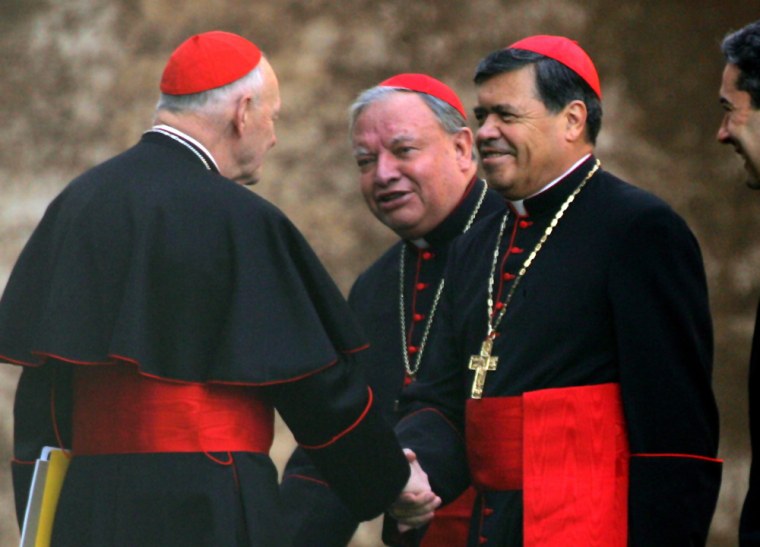Across Latin America, it’s as if they’re cheering for their national squads at the World Cup. But the nations battling for the top spot won’t be appearing at any stadium. This contest will be in the frescoed halls of the Vatican’s Sistine Chapel — and the prize is the papacy.
Politicians from across the continent have waded into a very public campaign for papal candidates that is irritating many church officials who insist only the Holy Spirit will influence the 115 voting cardinals in their decision.
The papal election “isn’t a soccer match,” Mexican Cardinal Norberto Rivera, considered an outside contender, told the Mexico City newspaper El Universal from Rome. “This isn’t decided by popularity or what the news media say. The one who decides is God.”
'We'll be rooting'
That hasn’t prevented others from letting their opinions be known.
“Obviously if he were from Latin America he would be much closer to us, and would know our problems better,” said Brazilian President Luiz Inacio Lula da Silva. “It would be even better if he were Brazilian. We’ll be rooting.”
Honduran President Ricardo Maduro wasn’t going to be left behind with his support for the archbishop of Tegucigalpa, Oscar Andres Rodriguez Maradiaga.
“With Cardinal Rodriguez, Latin America has an extraordinary chance of having a pope in the Vatican,” he said, calling the election “an opportunity to show the world that we have good things in Honduras.”
On his way to the pope’s funeral, he added: “I hope Cardinal Rodriguez is chosen as successor to John Paul II, because he’s a saintly man full of virtue.”
Cuba joins in
Even in Cuba, which was officially atheist from 1959 to 1991, the idea of a local pope was too tempting to resist. Ricardo Alarcon, the president of Cuba’s parliament, said in Rome last week that he’d be very happy if Cuban Cardinal Jaime Ortega were elected.
“If would be the first time I could say that the person elected pope is someone I’ve known for a long time and with whom I have a very affectionate relationship,” he said. “Not everyone gets to have a friend as pope.”
Colombian Vice President Francisco Santos told CNN recently that a Colombian pope “would be incredible” and might help settle the country’s four-decade-old civil war, as well as work for solutions to regional problems like poverty and discrimination.
The church doesn’t like the cheerleading, and some religious officials have denounced the politicians’ statements.
“Lula shouldn’t get involved or place bets,” said Cardinal Eusebio Scheid, archbishop of Rio de Janeiro, referring the Brazilian president.
Other officials were more diplomatic but left no doubt that politicians weren’t welcome in the Sistine Chapel.
“The pope will be everyone’s pope. It doesn’t matter where he’s from,” said Guillermo Marco, spokesman for Argentine Cardinal Jorge Bergoglio, considered a papal contender. “The mission of the church is religious, and politicians are another thing.”
